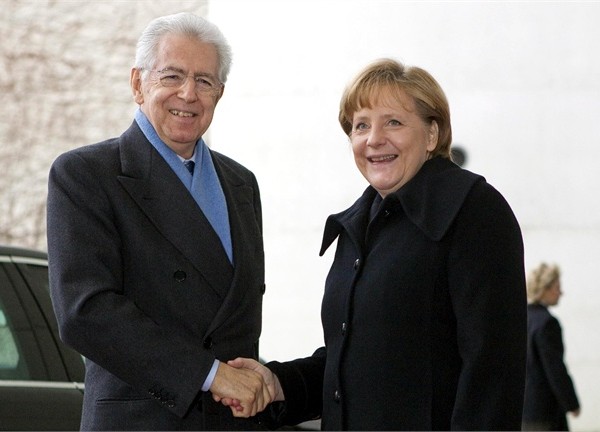2013 European Elections Will Determine Development of Crisis

In 2013, European elections will determine the development of the financial crisis there, which could in turn have a significant impact on the global economy's direction. Two major elections, in Germany and Italy, are approaching in Europe, both countries which have imperative roles in the EU and its financial recovery. A third election, in the Czech Republic, is more symbolic in scope, as it will be the first time the country will directly elect its head of state.
Germany will re-elect Angela Merkel but with the support of which party?
In September, Germans will go to the polls and will very likely re-elect Angela Merkel who has never been more popular, with an 80% approval rate. Her her party, the Christian Democrats, is currently at a seven year high in the polls, with 41%, but that is not enough to win a majority in the Parliament, making a coalition necessary. With who the coalition will be made remains the big question.
Merkel's current ally, the pro-business Free Democrats, have been scrambling and it is not certain they will be able to secure the 5% of the vote necessary to gain a seat in Parliament. Her remaining options would be to form a coalition with the center left party SPD, which is polling at 30% (with which we led a coalition from 2005 to 2009), or a partnership with the Green parties which are at 13-14% in the polls, a first for Germany.
The leader of the SPD, Peer Steinbrück, has been very critical of Ms. Merkel's management of the European crisis, believing she has sacrificed the interest of German's European partners in order to gain popularity in Germany. So far, he has ruled out serving on another grand coalition with Merkel's party and would favor a coalition with the Green parties.
With nine months left before the elections, the identity of the future coalition that will lead Germany remains uncertain, but it is extremely likely Angela Merkel will remain at the head of it. The result will, however, influence which direction Europe's biggest economy takes.
Italy has to choose a new Prime Minister
In February, Italians will have to choose their new prime minister in what will be closely watched elections. After a just over a year in power, Mario Monti, who was chosen to replace Berlusconi as the head of the Italian government in November 2011, will have an uphill battle to remain in power.
If his strong austerity measures and reforms of the Italian economy have reassured its European partners and markets, it has made him very unpopular among Italians. 60% say they are against giving him a second mandate. However, he received support to create a coalition with centrist parties for the February elections. He will face the center left candidate Pier Luigi Bersani, who is currently leading in the polls, and former prime minister Silvio Berlusconi, who will lead a coalition of right parties.
With 50% of Italians declaring they will abstain or are undecided, this election is tightest among upcoming European races, and its results will affect the evolution of the European crisis.
The Czech Republic will elect its President in January
The January presidential election in the Czech Republic is the least important in terms of affect on the European Union, but it nevertheless has symbolic importance that cannot be neglected. The Czech Republic became independent in 1993 as the result of the peaceful split of Czechoslovakia.
This year, citizens of the Czech Republic will, for the first time, be able to choose their President directly. The Parliament had this sole privilege previously. The candidate leading in the polls is former Prime Minister Milos Zeman. He is, at the difference of incumbent President Vaclav Klaus, in favor of stronger integration of the Czech Republic in the European Union and believes his country should join the Euro Zone at some point.




